Black History, Music, The Arts
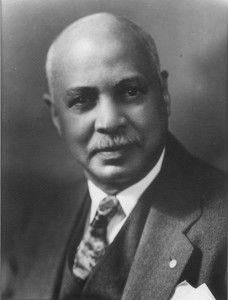
W.C. Handy
1873-1958 b. Florence, Ala. William Christopher Handy was largely self-taught, Handy began his career as a cornet player in a minstrel show in 1896, and later organized various small bands.
He was among the first to set down the blues, and with his Memphis Blues (1912), originally entitled Mr. Crump (1909), he rose to prominence. His songs, such as St. Louis Blues (1914) and Beale Street Blues (1917), are the classic examples of their type.
In 1918 he moved from Memphis to New York City and remained active as a writer and publisher of music, in spite of growing blindness, until shortly before his death. (more…)
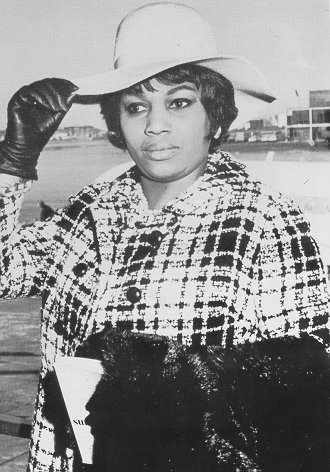
Black History, Music

Leontyne Price
Soprano Leontyne Price was born Mary Violet Leontine Price in Laurel, Mississippi, on February 10, 1927, the daughter of James and Katherine Price. Leontine was a very musical child and became a local success at an early age, singing at local weddings and funerals. After receiving local training, she sang in her first recital on December 17, 1943.
After studying at Wilberforve College (now Central State University) in Ohio, Leontine enrolled in the Juilliard School of Music in New York. She began studying with Florence Page Kimball and, shortly after changing the spelling of her name to “Leontyne”, she was accepted into the Juilliard Opera Workshop. Much of Leontyne’s musical education was supported by a wealthy family from Laurel, Alexander and Elizabeth Chisolm.
At Juilliard, she appeared in 1952 as Nella in Gianni Schicchi and and, later that year, as Mistress Ford in Falstaff. Also in 1952, she was invited by composer Virgil Thompson to appear as Saint Cecilia in a revival of his Four Saints in Three Acts in New York and Paris. (more…)
Black History, Music
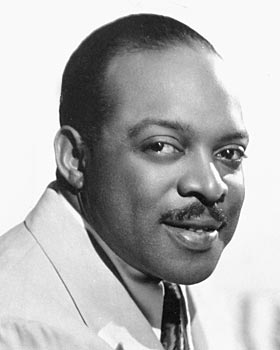
William James “Count” Basie
William James “Count” Basie (August 21, 1904 – April 26, 1984[1]) was an American jazz pianist, organist, bandleader, and composer. His mother taught him to play the piano and he started performing in his teens. Dropping out of school, he learned to operate lights for vaudeville and to improvise accompaniment for silent films at a local movie theater in his home town of Red Bank, New Jersey. By 16, he increasingly played jazz piano at parties, resorts and other venues. In 1924, he went to Harlem, where his performing career expanded; he toured with groups to the major jazz cities of Chicago, St. Louis and Kansas City. In 1929 he joined Bennie Moten’s band in Kansas City, and played with them until Moten’s death in 1935. (more…)
Black History, Music
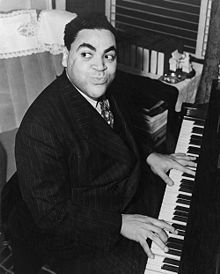
Fats Waller
Born May 21, 1904, in New York City, Fats Waller became a professional pianist at 15, working in cabarets and theatres, and soon became deeply influenced by James P. Johnson, the founder of the stride school of jazz piano. Waller’s innovations to the Harlem stride style laid the groundwork for modern jazz piano.
By the late 1920s he was also an established songwriter whose work often appeared in Broadway revues. From 1934 on he made hundreds of recordings with his own small band. His best-known compositions, “Ain’t Misbehavin'” and “Honeysuckle Rose”, were inducted into the Grammy Hall of Fame posthumously, in 1984 and 1999. (more…)
Black History, Music
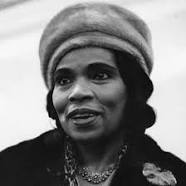
Marion Anderson
Marian Anderson (February 27, 1897 – April 8, 1993) was an African-American contralto and one of the most celebrated singers of the twentieth century. Music critic Alan Blyth said “Her voice was a rich, vibrant contralto of intrinsic beauty.” Most of her singing career was spent performing in concert and recital in major music venues and with famous orchestras throughout the United States and Europe between 1925 and 1965.
Although offered roles with many important European opera companies, Anderson declined, as she had no training in acting. She preferred to perform in concert and recital only. She did, however, perform opera arias within her concerts and recitals. She made many recordings that reflected her broad performance repertoire of everything from concert literature to lieder to opera to traditional American songs and spirituals. (more…)
Black History, Music

Eubie Blake
Eubie Blake was one of the most important figures in early-20th-century African-American music, and one whose longevity made him a storehouse of the history of ragtime and early jazz music and culture. Born in Baltimore in 1883, Blake began playing piano professionally when he was 16; he wrote his first composition, “Sounds of Africa,” (later retitled “Charleston Rag”) around the same time. His career did not really take off until he met Noble Sissle in 1915. Together, Blake and Sissle wrote many hits. Blake also collaborated with Andy Razaf (on “Memories of You”), Henry Creamer, and other writers, composing more than 350 songs.
Blake, Sissle, and Europe began collaborating on the musical Shuffle Along in 1916, but were interrupted by World War I and Sissle and Europe’s military service overseas. Europe and Sissle returned to the United States in 1919. Europe died shortly after returning from Europe; Blake and Sissle continued working on the musical until its premiere in 1921. (more…)





